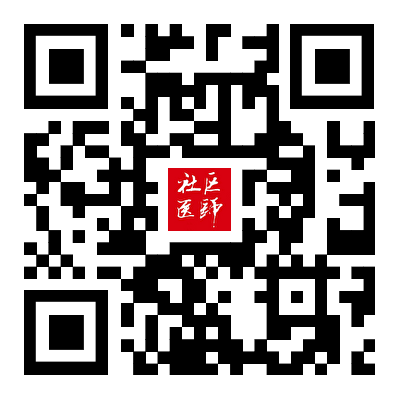
Author
Hu Xianguo

Angelica Sinensis (Dang Gui)
Also known as Quan Dang Gui, Gui Shen, Gui Wei, Gui Tou, and Jiu Dang Gui, it is the root of the perennial herb Angelica Sinensis from the Apiaceae family.
【Properties and Functions】
In Traditional Chinese Medicine (TCM), Dang Gui is considered sweet, pungent, and warm, entering the Liver, Heart, and Spleen meridians. It is known for its ability to nourish blood, regulate menstruation, invigorate blood circulation, relieve pain, and moisten the intestines to relieve constipation. It is suitable for conditions of blood deficiency, menstrual irregularities, amenorrhea, dysmenorrhea, abdominal pain due to deficiency and cold, traumatic injuries, carbuncles, and constipation due to dryness from blood deficiency.
Dang Gui is renowned for both nourishing and invigorating blood, earning it the titles of “Essential Herb for Women’s Health” and “Holy Herb for Blood Nourishment.” It is sweet and pungent, with a moist texture. Sweet and warm, it nourishes blood, while pungent and warm invigorates blood. It can treat all blood-related conditions and is particularly effective in nourishing blood, making it a holy herb for blood nourishment, suitable for treating menstrual irregularities, dysmenorrhea, and amenorrhea caused by blood deficiency.
Regardless of whether the condition is due to blood deficiency, blood stasis, cold, heat, deficiency, or excess, Dang Gui can be applied. It can both nourish and invigorate blood, making it particularly suitable for menstrual irregularities, amenorrhea, and dysmenorrhea caused by blood deficiency and blood stasis.
【Pharmacological Research】
Dang Gui has a “biphasic” effect on the uterus; its water-soluble, non-volatile, crystalline components can stimulate uterine muscle, enhancing contractions, while its volatile oils can inhibit uterine muscle, leading to relaxation.
Dang Gui protects the liver and prevents the reduction of liver glycogen.
Additionally, it has anti-vitamin E deficiency effects and provides sedative, analgesic, and anti-inflammatory properties.
The decoction of Dang Gui has inhibitory effects on dysentery bacilli, typhoid bacilli, cholera vibrio, hemolytic streptococci, and diphtheria bacilli. This herb can invigorate and nourish blood, thus benefiting those with blood deficiency accompanied by blood stasis.
【Clinical Applications】
1. Cough and Asthma: Dang Gui can both nourish blood and invigorate blood circulation to relieve asthma. The “Blood Syndrome Theory” states, “Qi relies on blood for sustenance; when Qi is obstructed, it leads to asthma, hence Dang Gui is used to nourish blood,” making it effective for cough and asthma caused by lung Qi obstruction.
Pharmacological studies show that the ligustilide in Dang Gui can relax bronchial smooth muscle and has significant effects in alleviating asthma caused by histamine.
Dang Gui extract shows good efficacy for chronic bronchitis (simple and asthmatic types) and has considerable effects on early or remission stages of pulmonary heart disease associated with chronic bronchitis and emphysema, alleviating symptoms and significantly improving lung ventilation.
2. Palpitations and Insomnia: The liver stores blood, the spleen generates blood, and the heart governs blood. When blood vessels are full, the heart is stable, and the liver stores properly. Insufficient heart blood leads to lack of nourishment for the spirit, causing palpitations and insomnia.
Dang Gui, being sweet and warm, enters the Liver, Heart, and Spleen meridians, nourishing blood and calming the heart, thus treating palpitations and insomnia. It is particularly suitable for palpitations and insomnia due to blood deficiency with stasis.
Pharmacological studies indicate that this herb has significant protective effects against experimental myocardial ischemia caused by various factors and can counteract arrhythmias induced by multiple drugs, slowing heart rate and reducing ventricular and supraventricular tachycardia, delaying the onset of ventricular fibrillation and increasing the fibrillation threshold.
3. Constipation: Dang Gui is sweet, warm, and moist, excelling in nourishing blood. Blood deficiency can lead to pale complexion, palpitations, insomnia, and insufficient yin blood, which fails to moisten the intestines, resulting in constipation.
Dang Gui can both nourish blood and moisten dryness, thus treating constipation due to blood deficiency and dryness, particularly suitable for elderly constipation, postpartum blood deficiency constipation, and constipation due to chronic illness and Qi and blood deficiency.
4. Stroke: Dang Gui has the ability to nourish and invigorate blood, showing good effects on numbness of limbs and hemiplegia due to stroke.
In stroke treatment, it is often used in combination with Huang Qi (Astragalus) to treat hemiplegia and numbness of limbs caused by Qi deficiency and blood stasis. Huang Qi focuses on nourishing blood and promoting blood circulation, while Dang Gui emphasizes nourishing and invigorating blood without harming it.
Pharmacological studies show that Dang Gui and its sodium ferulate content have significant anti-thrombotic effects. The compound Dang Gui injection, alternating injections at the Quchi (LI11) and Zusanli (ST36) points, can lead to varying degrees of blood pressure reduction and significantly improve symptoms such as dizziness, tinnitus, blurred vision, and insomnia.
5. Bi Syndrome: Dang Gui has the ability to invigorate blood, nourish blood, and relieve pain, effectively treating rheumatic pain caused by blood stasis and deficiency. It is commonly used for rheumatoid arthritis, gout, cervical and lumbar spondylosis, and shoulder periarthritis.
6. Deficiency Fatigue: Dang Gui is sweet, pungent, and moist, with a nourishing quality. Sweet and warm, it nourishes blood, while pungent and warm invigorates blood. It can treat all blood-related conditions and all forms of deficiency fatigue, particularly excelling in nourishing blood, making it a holy herb for blood nourishment, suitable for treating various conditions caused by blood deficiency.
Pharmacological studies show that Dang Gui contains volatile oils, linoleic acid, niacin, and vitamin B12, which have anti-malignant anemia effects. The water extract of Dang Gui can significantly promote the production of hemoglobin and red blood cells.
7. Menstrual Disorders: Dang Gui is sweet, pungent, and moist, with a nourishing quality. Sweet and warm, it nourishes blood, while pungent and warm invigorates blood. It can treat all blood-related conditions and all forms of deficiency fatigue, particularly excelling in nourishing blood, making it a holy herb for blood nourishment, suitable for treating menstrual irregularities, dysmenorrhea, and amenorrhea caused by blood deficiency.
Regardless of whether the condition is due to blood deficiency, blood stasis, cold, heat, deficiency, or excess, Dang Gui can be applied. It can both nourish and invigorate blood, making it particularly suitable for menstrual irregularities, amenorrhea, and dysmenorrhea caused by blood deficiency and blood stasis.
8. Traumatic Injuries: Dang Gui nourishes and invigorates blood, invigorating without harming the body, dispelling stasis while promoting new growth, and has pain-relieving properties, thus treating traumatic injuries, stasis, swelling, and pain. When stasis is dispelled and new growth occurs, blood circulation is restored, leading to the resolution of swelling and pain.
Pharmacological studies indicate that this herb promotes wound healing. Dang Gui can not only stop bleeding in local tissues but also enhance peripheral circulation, promoting rapid epithelial regeneration when applied externally.
9. Ulcers: Dang Gui can nourish and invigorate blood, often used in combination with Huang Qi to treat ulcers that are difficult to heal due to Qi and blood deficiency, or chronic ulcers that do not heal, thus nourishing Qi and blood and expelling toxins.
10. Diarrhea: Dang Gui can invigorate blood and regulate Qi, promoting healing of purulent diarrhea and alleviating post-defecation heaviness, thus treating diarrhea with abdominal pain and urgency, often combined with Mu Xiang (Aucklandia) and Qing Pi (Green Tangerine Peel).
【Dosage and Administration】
Dang Gui can be prepared as a decoction, tea, porridge, or added to meat dishes for stewing, based on personal preference and dietary characteristics.
Decoction: 10 grams each of Dang Gui and Huang Qi, decocted in water, taken once daily.
Tea: 10 grams of Dang Gui, optionally with dates, goji berries, longan, etc., steeped in boiling water, or decocted as a tea, taken once daily.
Porridge: 10 grams of Dang Gui with 100 grams of rice, cooked as porridge, taken once daily.
Soup: 30 grams of Dang Gui with one pig heart, seasoned appropriately, stewed and consumed once daily.
Concentrated syrup: 100 grams of Dang Gui, decocted three times, combined, and reduced over low heat, adding half the amount of honey, boiled to completion. Take 10 grams each time, twice daily, either dissolved in warm water or mixed into porridge.
Alcohol infusion: 30 grams of Dang Gui, 30 grams of honey, and 500 ml of white liquor, infused for one week. Take 30 ml each time, twice daily.
Additionally, it can be made into tablets, pills, granules, or mixtures.
【Precautions】
Dang Gui should not be used with foods or medicines that have purgative or gas-reducing effects, such as radishes, radish seeds, betel nuts, large abdomen peel, rhubarb, senna leaves, etc., to avoid diminishing the blood-nourishing effects of Dang Gui.
【Selected Formulas】
1. Dang Gui, Ginger, and Lamb Soup: 60 grams of Dang Gui, 30 grams of ginger, 500 grams of lamb, seasoned appropriately, stewed and consumed once daily.
This formula originates from the “Essentials of the Golden Chamber” and is a famous prescription by the medical sage Zhang Zhongjing for treating abdominal pain due to deficiency and cold. Dang Gui and lamb nourish Qi and blood, while ginger warms the middle and stomach, thus effective for post-illness or postpartum Qi and blood deficiency, abdominal pain, low fever, excessive sweating, amenorrhea, dysmenorrhea, constipation, bi syndrome, and traumatic injuries.
2. Dang Gui Blood Nourishing Soup: 6 grams of Dang Gui, 30 grams of Huang Qi, 500 grams of lamb, seasoned appropriately, stewed and consumed once daily.
This soup comes from the “Discrimination of Internal and External Injuries” and has the function of nourishing Qi and generating blood, with lamb warming the middle and replenishing deficiency. It is suitable for blood deficiency with Yang floating and fever symptoms, characterized by hot skin, red face, thirst, and a large but weak pulse that does not rebound when pressed. It is effective for women experiencing fever and headache during menstruation or postpartum blood deficiency, or for ulcers that have not healed for a long time. It also treats pale complexion, fatigue, and weakness due to Qi deficiency and blood loss.
3. Dang Gui Circulation and Stasis Soup: 10 grams each of Dang Gui, Mu Xiang, and Qing Pi, with 150 grams of duck meat, seasoned appropriately, stewed and consumed once daily.
Dang Gui invigorates blood and regulates Qi, while Mu Xiang and Qing Pi promote Qi and dispel stasis, and duck meat nourishes Yin and clears heat. This formula is effective for treating diarrhea, chronic colitis, and abdominal pain.
4. Si Wu Decoction: 12 grams of Shu Di Huang (Rehmannia), 10 grams of Dang Gui, 10 grams of Bai Shao (White Peony), and 6 grams of Chuan Xiong (Ligusticum), decocted in water, taken once daily.
Si Wu Decoction originates from the “Prescriptions from the Bureau” and is a key formula for blood nourishment, also serving as a foundational formula for gynecological regulation. For those with Qi deficiency, add Dang Shen (Codonopsis) and Huang Qi; for Qi stagnation, add Xiang Fu (Cyperus) and Yan Hu Suo (Corydalis); for blood heat, add Huang Qin (Scutellaria), Huang Lian (Coptis), Mu Dan Pi (Moutan), and Di Gu Pi (Lycium); for blood stasis dysmenorrhea or amenorrhea, add Tao Ren (Peach Kernel) and Hong Hua (Safflower); for blood deficiency with cold stagnation, add E Jiao (Donkey-hide Gelatin) and Ai Ye (Mugwort).
Highlights
Recommendations
General Practice|Grassroots Style|Hypertension|Diabetes|Pediatrics|Medication|Respiratory|COVID-19|Rural Doctors
|Family Doctors| TCM|Policy|
Important Statement
This article represents the author’s personal views and is not related to this platform.Any organization or individual is prohibited from reprinting or quoting without permission. For reprints, please contact for authorization.Legal responsibility will be pursued for unauthorized reprints or use!If there is any infringement, please contact the editor for timely deletion!
Official WeChat Service Account|Chinese Community Physician Journal
Official Website|Chinese Community Physician Network
关

Note
Grassroots Health|General Development|Health Science Popularization|Integration of Medicine and Prevention
Grassroots Diagnosis and Treatment|Traditional Chinese Medicine and Herbs|Project Activities|Continuing Education Training
Completely revamped, more exciting content, welcome to follow
